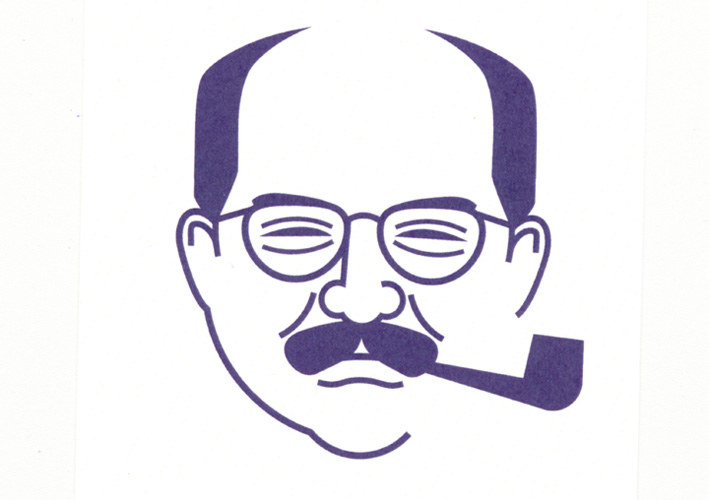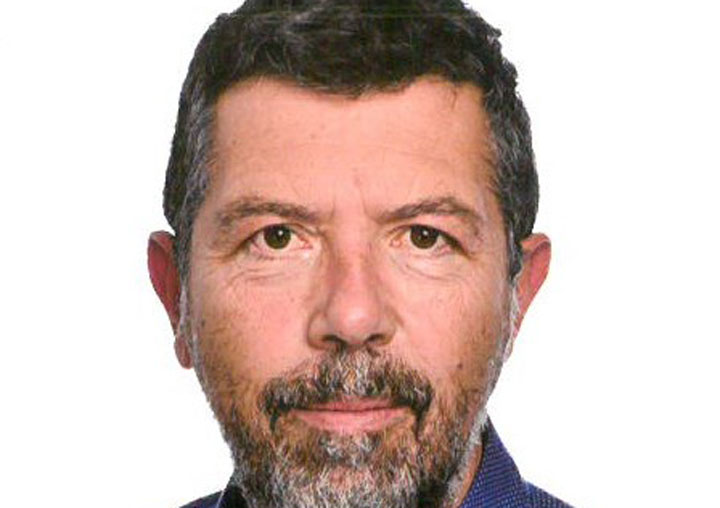Carmen Agulló, Josep Iborra (posthumously) and the Democracy Archive, winners of the Vicent Ventura Awards 2024
- Press Office
- March 22nd, 2024

The Vicent Ventura Awards 2024, the centenary year of the birth of the Valencian journalist and politician, will go to historian Carmen Agulló, essayist Josep Iborra (posthumously) and the Democracy Archive of Alicante. The award consists of a ceramic piece by Xavier Montsalvatje. This year, the awards ceremony coincides with a series of initiatives to commemorate the centenary.
It will take place on 26 April, at 18:00, at the Aula Magna of the La Nau Cultural Centre of the Universitat de València.
The jury of the awards is made up of representatives of the Universitat de València, the Universitat Jaume I, CCOO, Intersindical Valenciana, UGT, the Unió Llauradora i Ramadera, the Unió de Periodistes Valencians and of some who had a close relation with Ventura, such as his niece, Anna Aguilar Ventura, professors Ramon Lapiedra and Àngel Llàcer, philologist Vicent Pitarch, author Alfons Cervera, journalist Rosa Solbes and essayist Francesc Pérez Moragón.
Carmen Agulló
Carmen Agulló Díaz (Xinzo de Limia, Ourense, 1957) is graduate in Psychology and doctor in Sciences of Education by the Universitat de València. She is currently professor of the Department of Comparative Education and History of Education. She teaches at the Faculty of Sciences of Education and the Faculty of Teacher Training.
Her research is focused on the history of education of women; the history of education in the Valencian Country, especially during the Second Republic and Franco’s regime; the use of new sources in historical research, and the recovery of historical-educational heritage.
Among her publications are highlighted the monographs ‘Las maestras de la República’ and ‘Mestres valencianes republicanes’, as well as a number of articles in specialised journals of renown.
Agulló has been a member of the organisation in Gandia of seven editions of the Jornadas de Historia de la Educación Valenciana, and of the XXII Jornadas de Historia de la Educación en Valencia.
Founder and first president of the Institut d’Estudis de la Vall d’Albaida, she is currently president of the Societat d’Història de l’Educació del Països de Llengua Catalana (branch of the Institut d’Estudis Catalans).
She has taken part in the documentary ‘Las maestras de la República’, awarded with a Goya (2014), and has been awarded, amongst others, the award of the Federación de Mujeres Progresistas for her contribution to the recovery of historic memory (2007), Joan Baptista Basset of ACPV (2010) and the award to individual trajectory of the Escola Valenciana (2016).
Josep Iborra
Through Josep Iborra’s figure, the awards jury also wanted to put into value the work of the widow and the children of this Valencian intellectual who died in 2011. Since then, they have worked in the publication of his unpublished works, currently published by the Institució Alfons el Magnànim.
Born in Benissa in 1929, he is graduate in Philosophy and Literature and in Law by the Universitat de València. He published, amongst others, ‘Fuster portàtil’ (Joan Fuster Award 1982), ‘Inflexions’ (Bromera, 2004, Ensayo de la Ribera Alta award) and ‘Breviari d’un bizanti’ (Arola Editores, 2007).
From the moment of his passing, his wife, Joana Posadas, and his children, Enric, teacher and writer; Maria Eugènia, teacher and musician; and Joaquim, architect and teacher, indexed and organised his manuscripts that spanned numerous years, having a large cultural value.
Iborra was deputy director of the Institut de Ciències de l’Educació (ICE) of the Universitat de València, headed by Manuel Sanchis Guarner. He was also author of a doctoral thesis on Joan Fuster.
Democracy Archive
The Democracy Archive of Alicante has as their objective to collect, organise and disseminate documentary memory of the fight for democracy in Spain. It is an institution created by the University of Alacant 20 years ago, and has become one of the most emblematic projects of the academic institution.
In the many funds and collections, in the database, publications, exhibitions, minutes, theme portals... appear the many documentary and graphic testimonies related to political, economic, social and cultural activity of Alicante, or carried out by people of Alicante, in the years of the Transición and the democratic consolidation.
One of the latest and most important donations was the documentation, unknown until now, of the republican politician Juli Just, which, after two years, is now organised, digitalised and described.
File in: Institucional
















